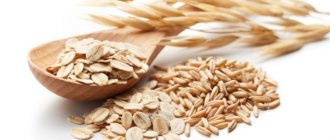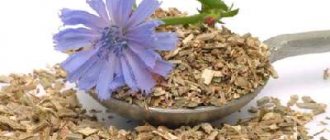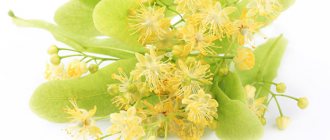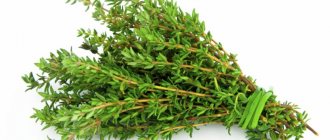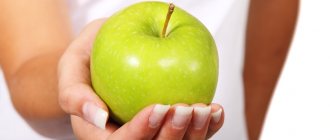Composition and beneficial properties of wild rose fruits
Fresh berries have gained extraordinary popularity among traditional healers due to the large amount of vitamin C they contain. Ascorbic acid is responsible for the production of collagen (a protein that forms connective tissue). Vitamin C also helps strengthen the immune system. Regular consumption of rose hips reduces the level of C-reactive protein: a substance produced by the liver during inflammation. Some researchers believe that tart berries may be an alternative to non-steroidal anti-inflammatory drugs. Unlike synthetic medications, rosehip does not dilute the blood and does not irritate the walls of the stomach.
Interesting to know! Most of the beneficial substances are found not in the peel, but in the seeds of the fruit.
Other beneficial elements contained in wild rose fruits:
- vitamins of group E;
- complete B-complex;
- calcium;
- iron;
- selenium;
- manganese;
- magnesium;
- phosphorus;
- potassium;
- sulfur;
- zinc.
In addition to the vitamin and mineral complex, red fruits contain organic compounds that directly affect the immune system. In particular, fresh berries and syrups are rich in lycopene, pectin, and lutein. Antioxidant components (flavonoids, phytochemicals, carotenoids) contribute to the rapid restoration of children's immunity after an inflammatory disease.
Allergy to rose hips in children
For inexperienced parents, the relevant question is at what age can children eat rose hips.
Rose hips are very useful for the immunity of children and have a large list of positive properties, but despite this, drinks from the fruits of this plant can provoke an allergic reaction in the baby. This is due to the diversity and presence of highly active components of the fruit composition. Therefore, experts, answering the question of whether it is possible to give rose hips to children, do not recommend giving it to children under six months of age. When the child turns 6 months old, you can start adding pureed berries to puree, but no more than 2 pieces per day. After the first feeding, you should carefully monitor the baby’s reaction to the new product for several days and make sure there is no allergic reaction.
The high content of ascorbic acid in fruits has an adverse effect on tooth enamel, so compotes, teas and decoctions should be given to the baby to drink through a straw. Older children can rinse their mouth with clean water after drinking a glass of drink.
What immunity remedies are there from rose hips?
In modern pharmacies and health food stores, rose hips are found in medicines for colds (NaturGrippin), choleretic drugs (Ovesol, Holosas). Since fresh berries are quite tart and sour, lollipops (for example, Verbena) can be offered to children to treat sore throats and improve local immunity. For those who prefer to drink medications and dietary supplements in one gulp, like a tasteless medicine, dry berry powder (the most famous manufacturer: Starwest Botanicals) is suitable.
But fresh and dry whole berries contain the most useful elements. They can be purchased in the form of tea, extract, tincture. For teenage children suffering from acne, dermatologists recommend purchasing oil to improve skin immunity.
At what age and in what dosage is it recommended to use rose hips for children?
The dosage of syrup depends not only on the age of the child, but also on the purpose of use. For example, during an exacerbation of an inflammatory disease, it is allowed to take a dosage 2-3 times higher than that prescribed to strengthen the immune system.
Official medicine allows syrups to be given to children over three years of age. While traditional healers recommend giving a weak rosehip decoction along with the first complementary foods when the baby is 8-9 months old. It is believed that such a supplement will form strong immunity. In any case, the amount of rose hips in the diet of a child under three years of age should not exceed 2 grams. That is, a child can eat one berry/100 ml of broth/1 tsp. syrup.
Children from 3 to 6 years old can drink 2 tsp. syrup per day, or 200 ml of decoction. When making calculations, you can focus on the recommended dose of vitamin C for each age. We also must not forget that the above dosage for strengthening the immune system is 2 times lower than the amount allowed during the treatment of inflammatory and colds.
After 12 years, the stomach walls can no longer accept ascorbic acid. It is allowed to consume up to 500 ml of decoction, 2 tablespoons of syrup. During ARVI, in consultation with your doctor, you can drink about a liter of weak decoction per day to prevent dehydration. The decoction also increases appetite, which is very important for protracted illnesses.
The benefits and harms of rose hips for infants
If the baby does not have allergies, then rose hips will not harm him either. You also need to remember to follow the instructions prescribed by your doctor. Only a doctor can prescribe any drug, including herbal ones, to a baby. Typically, rose hips in various forms are prescribed to infants and older children in the following cases:
- Infections, especially when accompanied by a cough.
- The need to increase body tone and strengthen the immune system.
Rosehip decoction quenches the thirst of children well, and also replenishes the body with calcium - if the doctor has no complaints, then you can also give your baby rosehip decoction as a preventive measure.
Before consuming rose hips, consultation with a doctor is required, as it also has its own contraindications:
- Presence of heart disease.
- Diseases of the digestive tract.
Rosehip is one of the best remedies for a range of diseases: from mild colds to more serious illnesses. However, you can use it, like any drug or herbal remedy, only after the recommendation of a doctor. Any thoughtless treatment can lead to undesirable consequences - the same story with rose hips. Sometimes rose hips are recommended for both mother and baby, since a cold or infection in the baby can be transmitted from the mother.
Rosehip is also a natural antibiotic
, which works much more effectively than other natural remedies, but does not harm the body if there are no contraindications. Even expectant mothers can use it, because they cannot use any medications.
Rose hips are almost always a necessary component of feeding a baby, since he needs to strengthen the body, in particular during the period when teeth are being cut: rose hips are an excellent source of calcium for a small growing organism.
Before you prepare a rose hip decoction for your baby, the rose hips need to be chopped. Next, add two tablespoons of the crushed mass to a glass container, pour in two glasses of water and place in a water bath. Rose hips should not be boiled for a long time - the beneficial substances may lose their healing properties due to prolonged heat treatment. After 15 minutes, the glassware should be removed and cooled for an hour, then strained and given to the baby. You need to give the decoction in small doses and monitor the baby’s reaction.
During lactation, mothers can also use rosehip decoction, but also after the recommendation of a doctor
and no more than one liter per day.
Rosehip decoction is an indispensable remedy in winter, when the risk of infection is especially high. However, both mother and baby can use it only as prescribed by a doctor and a detailed study.
To prepare rosehip compote, you can use both fresh berries and dried fruits. Again, there should be no prolonged heat treatment. The berries are poured with water and boiled for several minutes. This is a one-ingredient compote that can be sweetened with honey or sugar when it has cooled. It is not much different from a decoction. And for a real compote, you can also add dried fruits, apples, hawthorn or any other berries and fruits that are not prohibited for the baby. You can also add a slice of orange or lemon, but also after the recommendation of a doctor.
Rosehip compote is a whole set of vitamins that will help strengthen the baby’s immunity and will be much more useful than many medications. Such a compote will be especially valuable in winter, when vitamins are scarce and the risk of infection is high. If the mother uses it with her baby, the positive effect will be even more significant.
Rosehip is a natural immunostimulating remedy for adults and children.
Teas, decoctions and infusions prepared from it increase the body's defenses, so it is recommended to use it during cold seasons, as well as in the spring, when the body lacks vitamins. Children are allowed to take rosehip teas and infusions from the age of six months. But in order to brew rose hips for a child, you need to know the appropriate dosage and preparation methods for him. Rosehip tea
The easiest way is to buy bagged children's tea. One bag contains crushed rose hips in the dosage required for the child. You can find such tea in any children's store, and the process of preparing it will not take much time:
- put the bag in the cup;
- fill with hot water;
- let sit for about 5 minutes.
Then you need to take out the bag and let the tea cool.
It can be poured into a bottle and sweetened. If a child tries it for the first time, it is not recommended to sweeten the drink. Rosehip decoction and infusion
If you decide to strengthen the immune system of the whole family, then it is not necessary to brew rose hips separately for your child. You can take the usual amount of fruits and brew them, and for the baby, dilute the ready-made infusion with boiling water 1:1:
- take a handful of dried rose hips and put them in a thermos;
- fill them with hot water, but not boiling water, otherwise most of the vitamins will simply be destroyed;
- screw on the thermos and leave the broth in it overnight.
In the morning you can already try the finished drink.
If desired, add sugar and a slice of lemon. For prevention, it is enough to take the infusion once a day throughout the cold season. After which its use must be stopped. For medicinal purposes, the infusion can be drunk up to 2 times a day until recovery (about a week). To make the infusion prepare faster, you can pre-chop the fruits. Then the infusion time will be reduced by 2 times. But there is a more efficient way:
- pour the fruits into a thermos and fill them with hot water, let it brew for about an hour;
- then take out the rosehip and mash it into a paste;
- add her thermos with infusion and close the lid;
- After half an hour you can already drink.
Don't forget to dilute the finished infusion before giving it to your child.
For a child's body, the dosage should be 2 or 3 times less. If you don’t have a thermos, the infusion can be prepared in a teapot by first chopping the fruits. You can also prepare a decoction from rose hips for a child. To do this you will need about 10 dried rose hips, a liter of hot water and a liter glass jar:
- put the berries in a jar;
- fill them with hot water, adding it in portions so that the jar does not crack;
- Place the jar in a pan of hot water and boil the broth in a water bath for 15 minutes over low heat.
Then carefully remove the container and let the broth cool at room temperature, half covering the jar with a nylon lid.
After this you need to strain it. The water will not boil in the jar, so the vitamins cannot be destroyed. In this case, there is no need to dilute the broth. It should be remembered that under no circumstances should you constantly take decoctions and infusions of rose hips. Their constant use contributes to blood thickening and increased blood pressure. Therefore, give this vitamin drink to your child only when necessary. In addition, the constant use of decoctions and infusions reduces their effectiveness.
Rosehip is a common plant in Russia, which is actively used by mothers to treat many childhood diseases. Recommended by pediatricians for the prevention of viral and seasonal colds. Rose hips should be used with caution for a child, as there are contraindications. It is important to comply with age restrictions and dosages.
How exactly does rose hips affect a child’s immunity?
Everyone knows that rosehip preparations are actively used to strengthen the immune system. But the most responsible parents also want to understand the mechanism of the effect of red fruits on the body. Of course, the main effect is exerted by an impressive amount of ascorbic acid, which is not for nothing called an immunity booster. Vitamin C stimulates white blood cells, which are the main defenders of healthy cells. Children who took the miraculous syrup for preventive purposes are much less likely to suffer from respiratory diseases.
Is it possible to replace syrup with tea or decoction?
The syrup is most often used to prevent ARVI and strengthen the immune system. But during the period of illness, more benefits can be gained from tea or decoction. Drinking plenty of warm fluids in itself is ideal for clearing mucus from the airways. Rosehip tea or decoction will additionally enrich a weakened body with vitamin C, speed up recovery and restore immunity.
On the other hand, the concentration of vitamins and antioxidants in syrup is tens of times higher than the concentration in tea. Of course, we are talking about a drink to boost immunity, brewed from dry fruits. A relatively equivalent replacement is possible provided that the tea or decoction was prepared from freshly picked berries.
Important! Rose hips in the form of infusions are prohibited from being given to children under 13 years of age. Using harmless water extraction, less than 5% of the beneficial components can be extracted. And alcohol tincture will do more harm than good.
Poems about rose hips
To conclude the topic, I want to share with you wonderful poems that were written about the beautiful and very useful rose hip plant.
Irina Bukreeva “Rose hip, rose of the white night...”
The rosehip, the rose of the white night, will open its bud at dawn. And the wind will fill the cup of morning coolness with its aroma. And the world, resting in half-asleep, will become more beautiful by inhaling it, and the sun will dance in the joyful languor of its rays. And as if someone will sprinkle the surroundings with holy dew water. And soaring above the vanity, You cherish tenderness in your soul. To the rosehip flower - to the baby, Turning pink in the morning. And joy comes to the heart, And you believe: the world is arranged wisely.
E. Stewart “Here comes autumn...”
Sometimes there are groves that look like gold, And at dawn - in cold silver, But, like in spring, the rose hips bloom again, The rose hips bloom again in September! Even if those flowers are barren and in vain, Let the first frosts kill them, - They are beautiful! They are so beautiful, That let them bloom, let them bloom in September! There are women who, having given their daughter in marriage, Are themselves full of austere beauty, Some kind of fragile charm, just like these belated flowers. Who will tell them: beauty is in vain, It will be destroyed by frost at dawn... They are beautiful! They are so beautiful that let the rose hips bloom in September!..
Tsvetova T.I. "Rose hip"
She came to us from the island of Rhodes, Captivating everyone with her beauty, One beautiful rose, That blooms in the heat and heat. In her many-faced attire - There are many shades, she In the guise of an angel and wild So fragrant and tender. Her clawed guilt began to be called Rosehip, Than having surrounded her innocence, Kept youth and became.
https://www.youtube.com/watch?v=aliftvUCPI5NZlW3cc4-RiR8ZODylA
Tarkovsky Arseny "Rose Hip"
I bequeath to you a rosehip, all full of light, like a lantern, a letter book of June butterflies, a backyard holiday dictionary. As soon as the gate was opened, in its basket, of its own accord, like strings in a locked piano, the discord hummed and tinkled. There, on the steps of chiaroscuro, straight wings knocking Again, a rainbow of visions, both along and across the beam. It was obvious and understandable The space of a closed ball - A tangle of lines, a babble of spots, The flickering of mating couples. 1962
Sitting on a stick, wearing a red shirt, belly full, stuffed with stones.
The tree stands curly, with wolf claws, and whoever comes up will embrace him.
We hope that the beneficial properties of rose hips will be useful to you to improve your health!
Recipe for making rosehip syrup at home
Making syrup at home is easy. The main thing is to make sure that the berries are environmentally friendly. You also need to pay attention that the composition contains sugar, which parents of diabetic children should avoid.
Ingredients:
- 4 tablespoons of dried or chopped fresh rose hips;
- 4 glasses of water;
- 5 spoons of sugar.
Pour water over the rose hips and bring to a boil. Add sugar while vigorously stirring boiling water. Reduce heat and cook until most of the water has evaporated. Remove from heat, strain the liquid (about 200 ml will remain). Cool and give to the child in the permitted quantity.
Rose hip syrup
Legends about wild rose
People made up legends about rose hips. There are several of them, all of them are beautiful. A legend widespread in Kuban tells that in ancient times one beautiful Cossack girl and a brave Cossack youth fell in love with each other. They swore an oath of allegiance to each other. But the village ataman also fell in love with the Cossack girl.
In order to get rid of his rival, he sent a young Cossack to serve in the army. Saying goodbye to his beloved, the young man handed her his reliable dagger. The village ataman immediately began persistently asking the girl to marry, but she responded to him with hatred. This provoked the villain even more, and he ordered the servants to steal the beauty from her parents’ house at night.
She languished in prison for a long time, but the wedding day was still set. The girl managed to escape, and the wedding did not take place. She found herself in the forest, where she walked with her beloved until separation. She remembered the happiness of meeting the young man, could not bear the heartache and plunged the dagger left by her beloved into her heart. Drops of blood fell to the ground, where an unusually beautiful bush immediately grew with soft pink flowers that emitted a magical aroma.
One day the chieftain saw a beautiful bush and wanted to break a branch with flowers, but the whole bush immediately became covered with sharp thorns, protecting itself. The villain tried to deal with the bush, but only stabbed his hands and abandoned the idea. In autumn, the flowers turned into fragrant, bright red fruits that resembled large drops of blood. Good people collect these fruits and brew tea from them, which helps restore health and vigor.
One day, a grandmother who had been ill for a long time stopped and suddenly heard a voice: “Take my fruits, grandmother, make healing tea from them. Don’t be afraid of sharp thorns, they are for evil people.” The old woman picked the berries, made tea from them, drank them and felt ten years younger. Her strength and health began to return, and she lived for many more years.
https://www.youtube.com/watch?v=ytcreators
The Greek legend about the rosehip is no less beautiful, and there is also a place of love in it. Aphrodite, the goddess of love, having learned about the death of Adonis, her lover, during a hunt, rushed after the messenger to see Adonis for the last time. She ran through the thickets of wild roses, and the thorny branches scratched her delicate skin until she bled.
Rosehip is an ancient plant; it grows wild in the Himalayas and mountains of Iran. Man began to collect and consume its fruits a long time ago, and since then, rose hips have been one of the traditional and familiar plants that we use for treatment, prevention and health promotion. In ancient times, rose hips were used for cooking, paints, medicines, decorations were made from it, and even thorns were used for protection. In ancient Rome, Greece, as well as among the Slavic peoples, it was a symbol of beauty, love, morality and youth.
Contraindications and side effects of syrup
Before you start taking the syrup, you need to show your child to the doctor. Rosehip products are highly allergenic, so there is a risk of developing unpleasant side effects such as rashes and diarrhea.
Other contraindications to taking syrup:
- diabetes (exceptions are drugs containing fructose);
- hemochromatosis;
- Thalassemia.
If a child is allergic to citrus fruits, then with a high degree of probability, the body will not accept tart berries.

